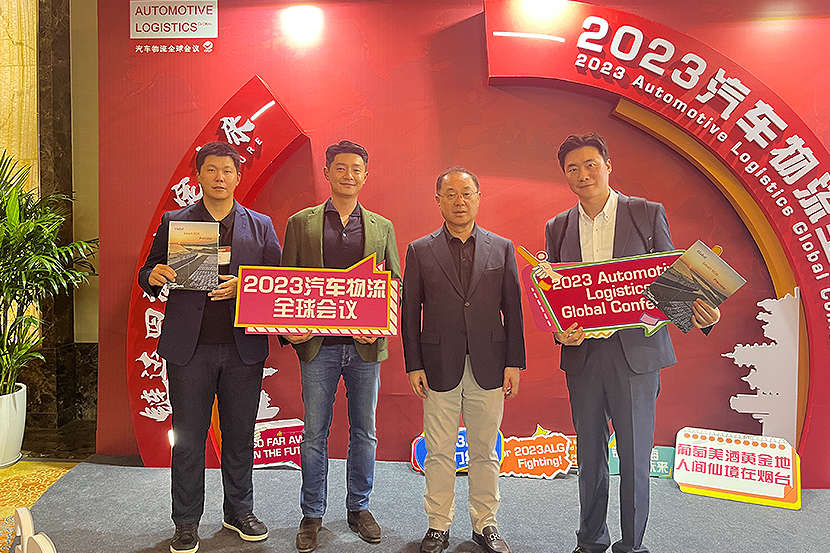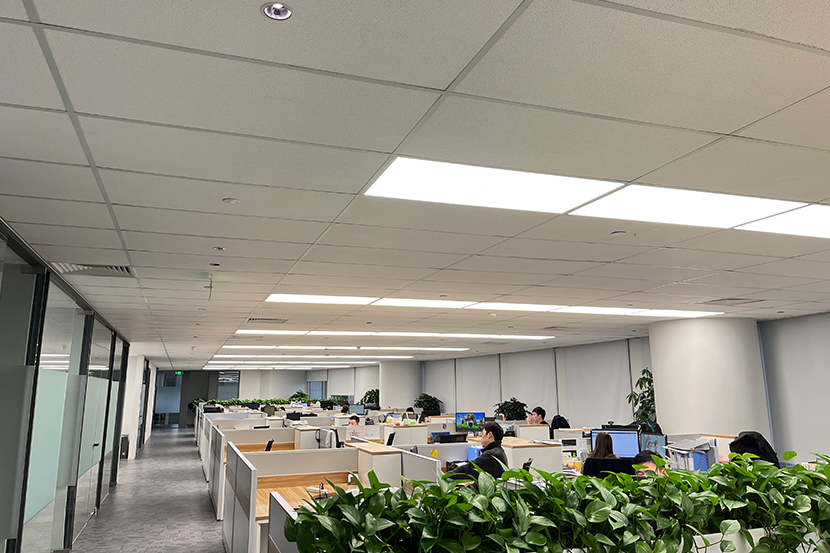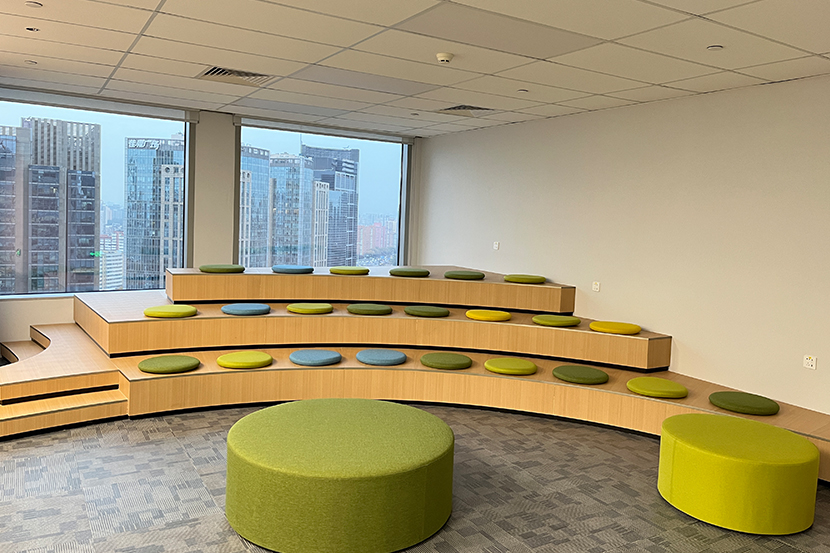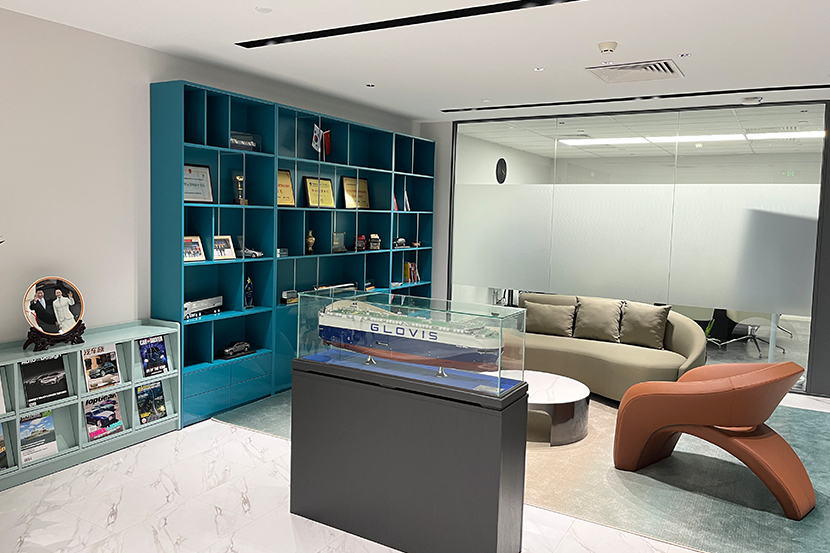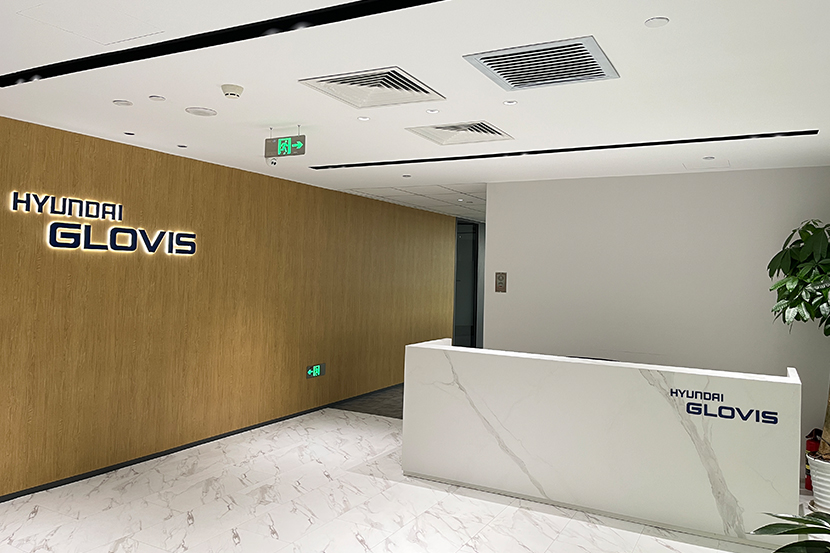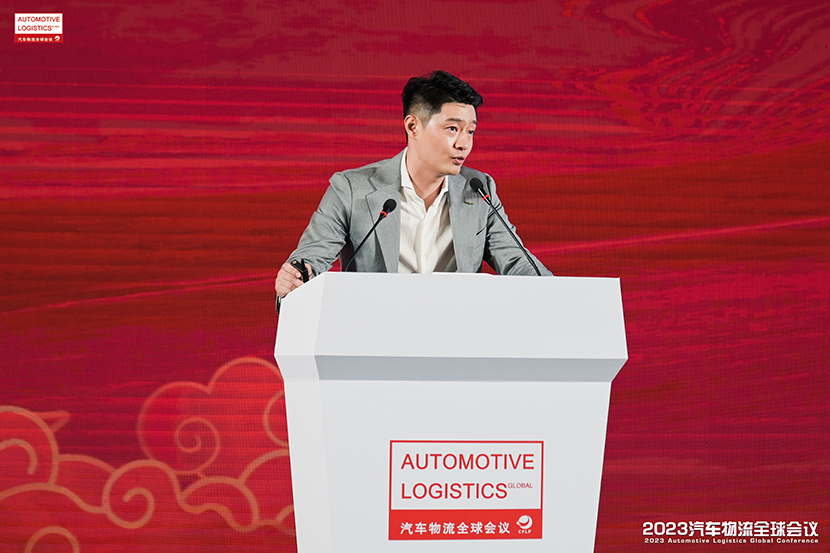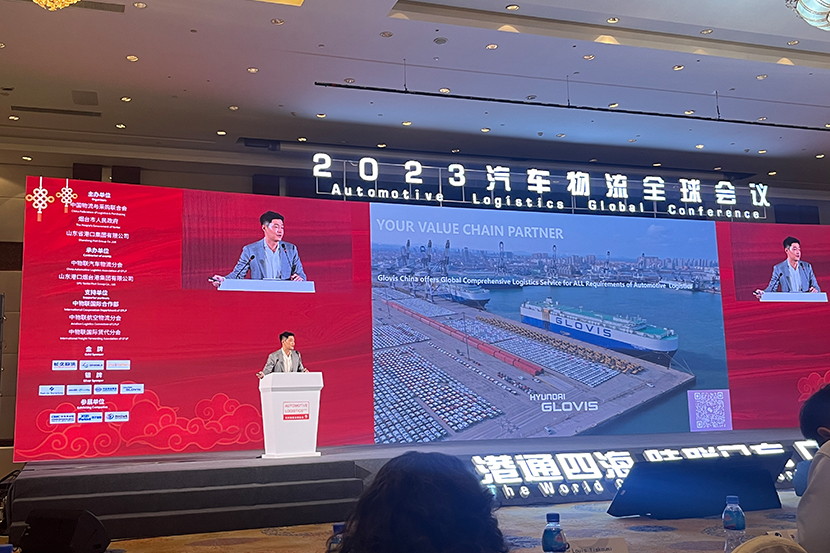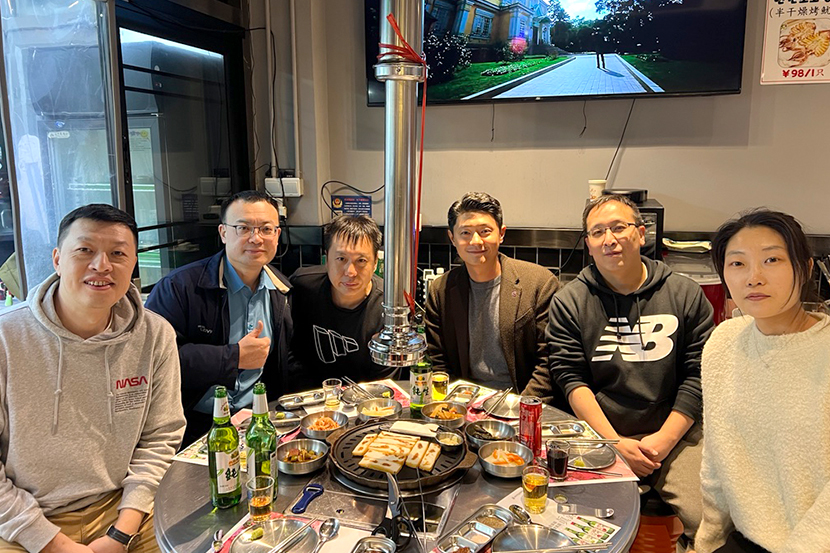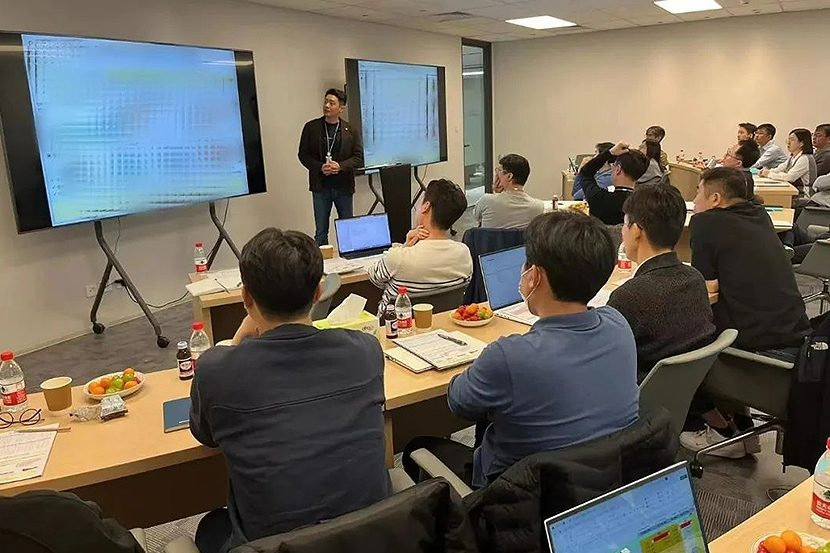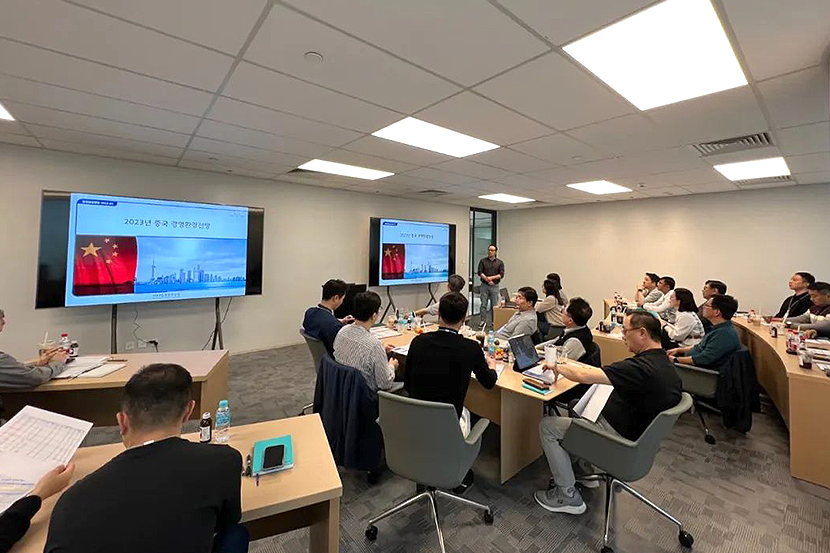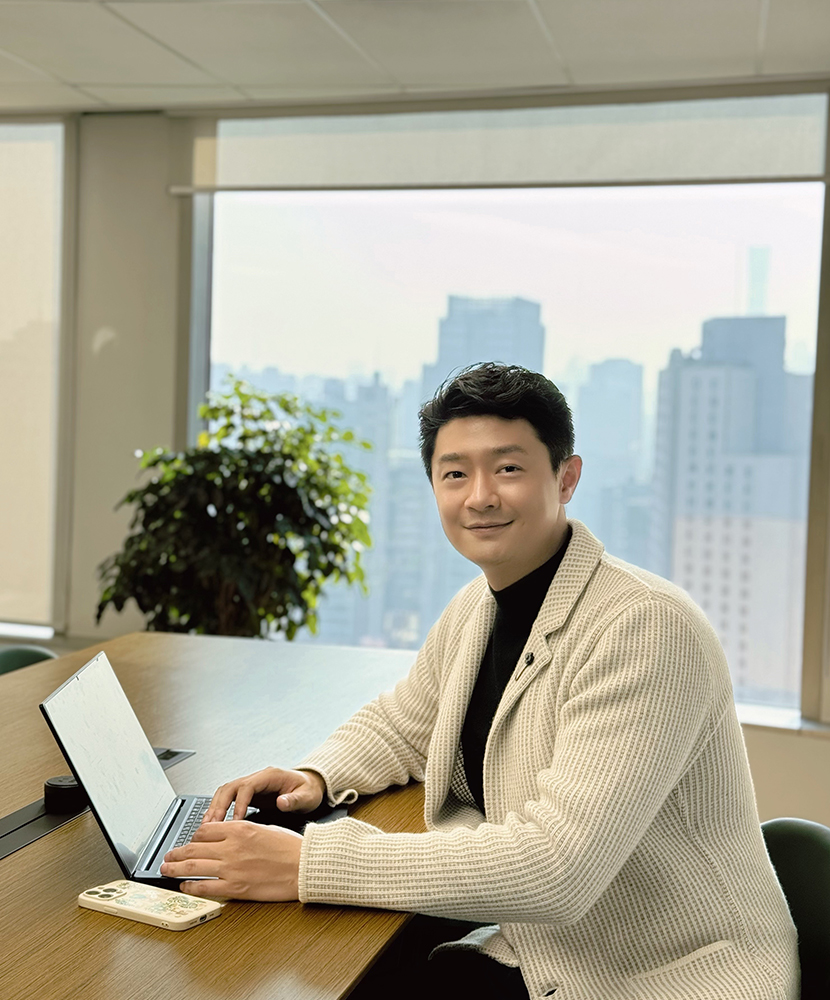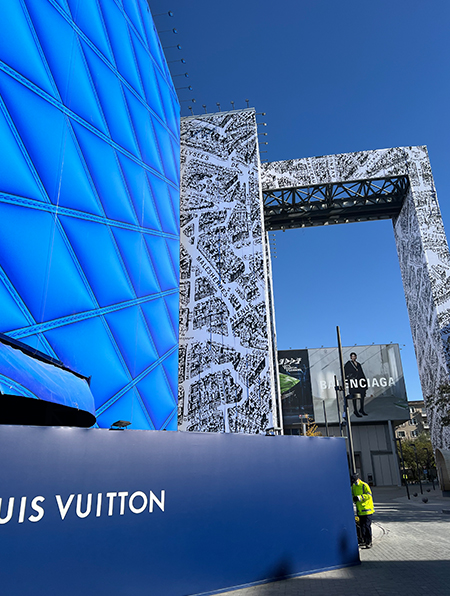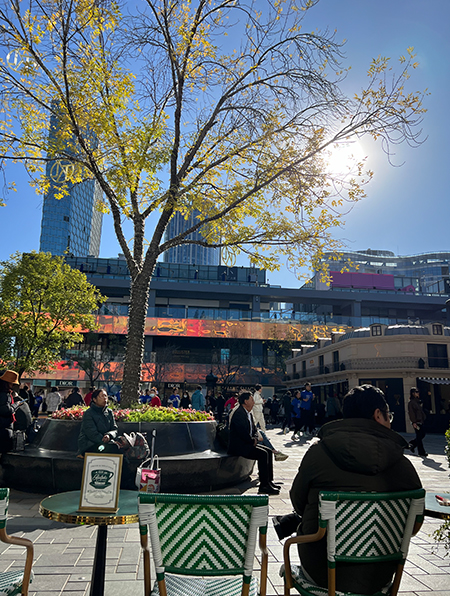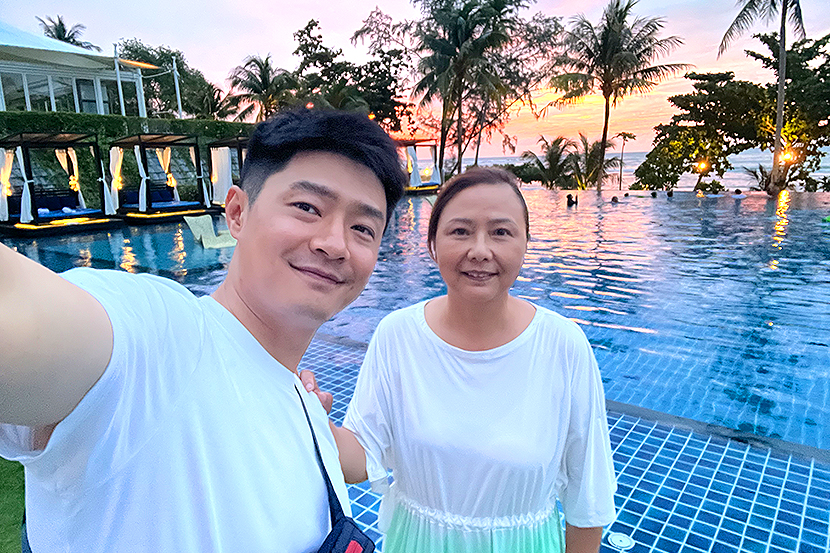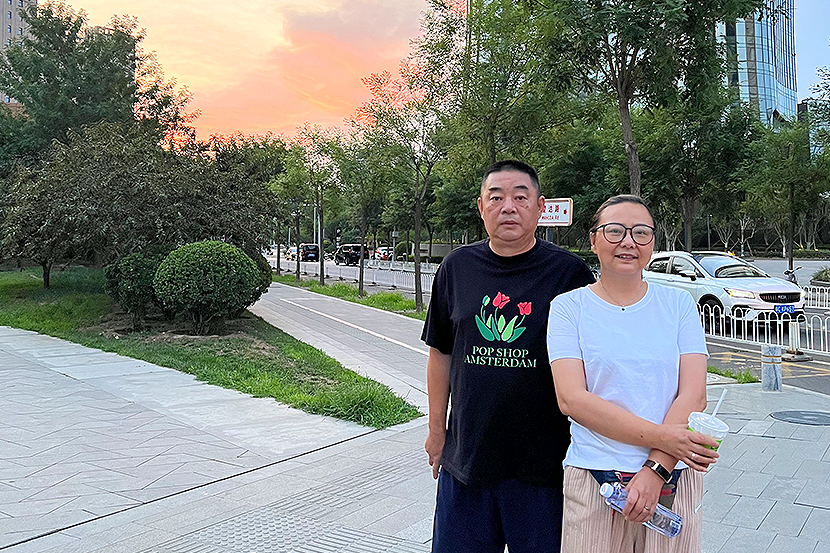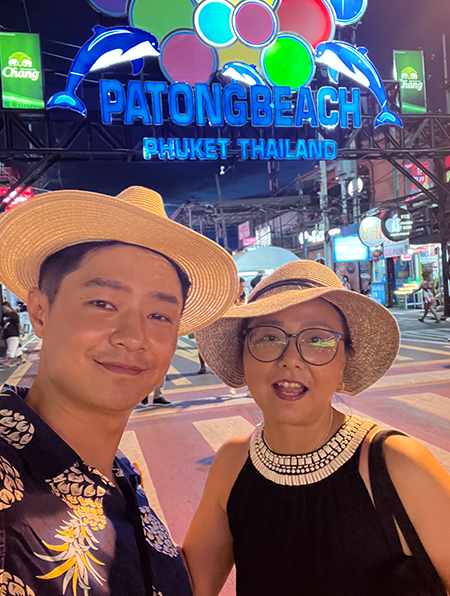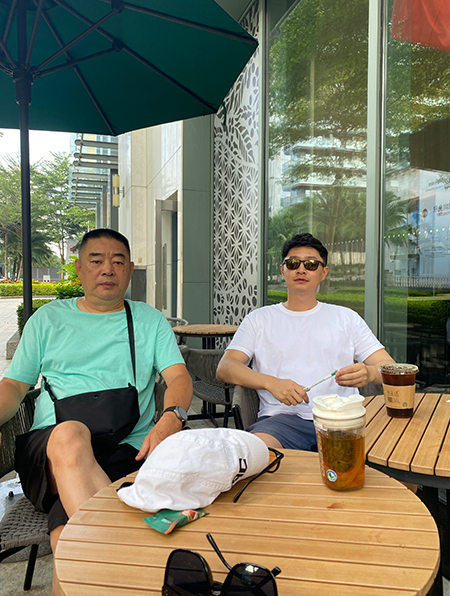The Chinese market is characterized by both opportunities and risks. For Hyundai Glovis, China is a country it wants to conquer and needs to conquer, so the company, which has successfully entered the local logistics market with its overseas logistics capabilities and Chinese network, still has a long way to go. Senior manager Chen Tao, who was sent to the Chinese subsidiary after working at the Korean headquarters for 10 years, also dreams of reaching that destination with the company. We dive into his intense life in China, where he says his native language is barely recognizable after living in Korea for so long.
Winds of Change Blow Across China
Senior manager Chen Tao came to Korea in 2009 to study. He studied Logistics/SCM at Inha University’s School of Asia-Pacific Logistics and joined Hyundai Glovis in early 2013 as an open position. He worked in the KD Division and the Overseas Business Promotion Office, where he gained knowledge and experience in various fields and met great colleagues. After more than 10 years as a Hyundai Glovis employee, Senior manager Chen Tao will take on a new challenge as General Director of China Region on January 1, 2022.
The China region currently operates as a nine-company, multi-regional subsidiary system providing logistics and distribution services to joint venture factories and unaffiliated shippers in China. The regional organization is currently divided into the CFO, Strategic Planning and New Business Development teams, which focus on the overall management of all entities/businesses in China and the identification and development of new business opportunities. In this role, Ms. Chen Tao is primarily responsible for new business development. After analyzing the business direction and strategy of the region, he is currently developing and implementing the export business of Chinese automakers to other OEMs.
At the time of Senior manager Chen Tao’s arrival, sales of the affiliated factories continued to be sluggish, forcing the region to find ways to survive on its own. At the same time, the Chinese automotive market was changing rapidly and the export market was growing significantly. Recognizing these changes, the China region set out to provide global export services to Chinese automakers. Currently, we provide global export services for Chinese OEMs, namely G.C.L.S. (Global Comprehensive Logistics Service).
Work performance out of sincerity and challenge
“We are a specialized logistics and distribution company dedicated to the global logistics of Hyundai Motor Company and a leading global PCC carrier, but we are still not well known to some Chinese manufacturers. In addition to PCC, our overall logistics capabilities, experience and network for automotive KD parts are also not well understood. Therefore, we communicate with our customers to understand their business problems and needs, and use our 20 years of global logistics capabilities and network to make customized proposals to our customers.
To make sure he’s on top of things, Senior manager Chen Tao’s day is packed. He organizes internal tea-time meetings to share key issues in the region and get input from regional managers on key issues for direction. He also keeps up with market intelligence by sharing key market and customer trends. In his current role, he is responsible for the third-party OEM business, which has achieved significant results this year despite various challenges and is involved in responding to new needs from strategic shippers and addressing development and operational issues on a daily basis.
Senior manager Chen Tao attending a local conference in China
“You may ask what the significant result is? Due to the surge in finished vehicle exports from China, global PCC carriers, including us, faced a shortage of ships from the Far East. However, the Chinese manufacturers’ willingness to do business was strong, so we communicated with them and won the global export business of a Chinese OEM. We proposed a door-to-door transportation service from the customer’s Chinese factory to the overseas location, and provided G.C.L.S., including export vehicle T/P transportation, export port/station PDI, international transportation, and local logistics. Starting from these services, we have standardized and commercialized them, and are now proposing and negotiating with Chinese automobile manufacturers.
Senior manager Chen Tao(third from right) and local colleagues
Through choice and focus, declare a leap forward
In China, you can’t afford to be complacent about your successes, big or small. The Chinese market is huge and competition is fierce. In recent years, affiliated companies have faced high barriers that have affected and challenged them. General Manager Chen Tao says that the company has decided to focus on what it is good at, including long-term thinking and trend analysis, short-term reduction of non-core businesses, and focusing on what it is good at. This, he believes, will prepare the company for the next quantum leap in the China region in the future.
Therefore, it is important to set a medium- to long-term business direction for the China region. Hyundai Glovis is preparing to expand exports to affiliated automotive companies, focusing on KD business capabilities accumulated over decades to export various types of automotive parts such as KD, SKD, and DKD to shippers.
In addition, Hyundai Glovis is focusing on other OEM G.C.L.S. business and global forwarding business to respond to the aforementioned increase in exports to the Chinese automobile market. The challenge for the China region will be to formulate and implement a mid- to long-term business plan based on careful consideration. Senior manager Chen Tao, pledged to continue to play a pivotal role and stand proudly as a Hyundai Glovis staff in the future.
“For a Chinese to work as an expatriate in China is
to create a path that hasn’t existed before.
It comes with challenges and responsibilities, and I need to do better.
I will keep the poem in mind: “Today’s footsteps are a signpost for those who come after.
Employees conducting a workshop in the conference room
![]() What was different before and after you worked in China?
What was different before and after you worked in China?
When I worked at the headquarters, I did a lot of China-related work, but I lacked field skills and the ability to communicate directly with customers and make suggestions. After I was sent to China as an expatriate, I had more opportunities to learn on-the-job tasks, and I think I developed my communication, judgment, and analytical skills. In addition, I was able to apply the skills I learned at the headquarters to various areas in China, and I once again feel and appreciate that Hyundai Glovis is a global specialized automotive logistics and distribution company.
![]() Do you have any memorable stories to tell about your time in China after having worked at the headquarters for such a long time?
Do you have any memorable stories to tell about your time in China after having worked at the headquarters for such a long time?
When I joined Hyundai Glovis, there were no expatriates in the company, and I had a lot of difficulties adjusting to working life in Korea, but I was very grateful for the support I received. However, coming to China as an expatriate after a long time felt like a different world, and communicating with employees and customers in Chinese was a new experience and challenge for me as a Chinese. At the beginning of my assignment, I did a lot of reviewing and speaking practice in the Chinese language that we often use in the company, because my native language is unfamiliar and sometimes words don’t come to my mind. And in China, different regions have different cultures, weather, languages, lifestyles, etc. I feel like I’m finally settling in. haha!
![]() What is your neighborhood like?
What is your neighborhood like?
I used to live in a neighborhood called Wangjing, which has a lot of expatriates from Korean companies. It has convenient facilities for Koreans, restaurants, and schools, and is geographically close to the city and the airport. Recently, I moved to a neighborhood closer to my company, which is about 15 minutes away by car.
![]() What do you do after work and on weekends?
What do you do after work and on weekends?
Last year, I was heavily affected by the COVID-19 pandemic, and this year, I haven’t been able to enjoy my leisure life as much as I would have liked due to my busy work schedule, but I love to exercise and go on city walks (a Chinese Gen MZ way of traveling, where you walk around freely and explore the unique parts of the city, not the famous tourist attractions). Like Korea, China is also experiencing a fitness craze among the younger generation, and I definitely head to the gym after work or on weekends, and I’ve also started traveling around China with my family.
![]() Do you have any tips to make my stay in Beijing safer and more enjoyable?
Do you have any tips to make my stay in Beijing safer and more enjoyable?
There’s not much you can’t do in China with a smartphone and an app: Alipay or WeChat for paying for transportation, doctor’s appointments, shopping, travel, deliveries, social media, and more. If you’re going to live abroad or travel to China, it’s a good idea to learn how to use these apps before you go.
Sanlitun, hot spot for China’s younger generation
![]() Please introduce me to your favorite restaurants in Beijing.
Please introduce me to your favorite restaurants in Beijing.
I love meat and I love to eat it, so I’m always looking for good restaurants in China. I recommend Hunjiu Yiqian, a chain that specializes in lamb skewers. The lamb is fresh, the interior is very clean, and the staff is very friendly, with standardized service training. For urban walking, I recommend Sanlitun in Beijing and Taiguri in Sichuan. These neighborhoods are a hot spot for the younger generation in China, with lots of restaurants, bars and shopping.
Traveling with parents
![]() Is there anything you would like to do while working in China?
Is there anything you would like to do while working in China?
In terms of business, I would like to use the knowledge and experience I have gained during my time at the headquarters to develop and open new businesses in the Chinese market. I would also like to use our capabilities and network to expand our OEM and global freight forwarding business from China. On a personal level, I would like to travel with my parents, because we have been living abroad for a long time and have not had enough time to spend together.
China is a big market and there are a lot of opportunities ahead of us.
If there are juniors who want to get a taste of different cultures and scale China,
I encourage them to give it a try.”
By Editorial Department
2023.11.21


